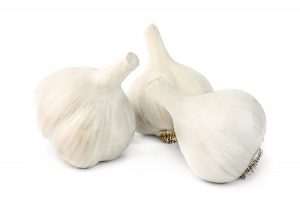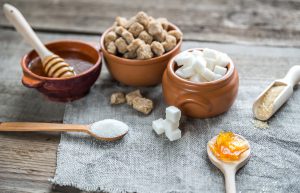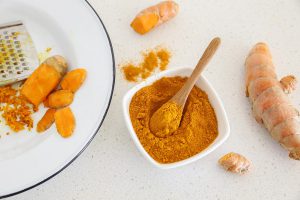Our immune systems protect us from viruses, bacteria, toxins, and fungi. It is expertly designed to function well on its own. But there are natural measures we can take to support immunity. Here we outline 25 ways to boost immune system naturally to promote overall health.
25 Ways to Boost Immune System Naturally
1. Manage Stress

High levels of stress over prolonged periods of time can suppress immunity, promote inflammation, and create imbalances in immune cell function.
Also, chronic stress can increase the susceptibility of certain kinds of cancer. We are all wise to find ways daily to minimize and relieve stress and anxiety in our lives.
Activities that can help with stress management include yoga, exercise, massage, meditation, visualization, and mindfulness practices.
10 Natural Remedies For Stress and Anxiety More Powerful Than Prozac
2. Antioxidants
Antioxidants support the immune system because they protect immune cells from environmental damage. They also promote the production of bacteria-killing white blood cells. Antioxidants also help your body repair cells damaged by free radicals.
The most common antioxidants are vitamins C, and E, as well as beta-carotene and lycopene. They can be found in foods like fruits, vegetables, teas, and juices. You can also take supplements.
According to Healthline, “The body also needs vitamin E to help keep the immune system strong against viruses and bacteria. Vitamin E is also important in the formation of red blood cells. It helps the body use vitamin K. It also helps widen blood vessels and keep blood from clotting inside them.”
Vitamin C Foods
- All citrus fruits – oranges, lemons, limes, grapefruits
- Tomatoes and tomato juice
- Potatoes
- Acerola Cherries
- Rose Hips
- Chili Peppers
- Guavas
- Other foods: kiwi, strawberries, cantaloupe, Brussels sprouts, and green, yellow, and red peppers.
Vitamin E Foods
- Sunflower, corn, soybean, and wheat germ oils
- Almonds, peanuts, hazelnuts, and other nuts
- Seeds – sunflower, pumpkin, and others
- Green leafy vegetables – kale, spinach, and broccoli
- Fortified foods including juices, cereals and margarine, and spreads
Beta Carotene Rich Foods
- Cod liver oil
- Eggs
- Beef liver
- Fortified breakfast cereals
- Fortified skim milk
- Yellow and orange vegetables and fruits
- Broccoli, spinach, and most dark green, leafy vegetables
Lycopene Foods
- Grapefruit
- Papaya
- Sweet red peppers
- Persimmon
- Guavas
- Cooked tomatoes
- Watermelon
- Asparagus
- Red cabbage
- Mangos
3. Get Enough Sleep
Sleep is one of the pillars of health and there is a close relationship between sleep and immunity. There is plenty of research showing that poor sleep is linked to increased susceptibility to illness. A 2015 study with 164 healthy adults found that those who slept for less than 6 hours each night were more likely to catch a cold than those who slept 6 hours or more each night. (Prather, et al. 2015)
But, adequate rest offers protective benefits for the immune system, and can even make it function better.
A 2019 review found that sleep affected various immune parameters by reducing the risk of infection and improving infection outcomes and vaccination responses (Besedovsky, Lange, & Haack. 2019).
4. Raw Garlic

There are many health benefits of raw garlic, but it is known for its strong antiviral and antimicrobial properties.
Allicin, the potent sulfur compound in garlic has been linked to the treatment of yeast infections, killing of parasites, decrease in the length and severity of viral infection, and the treatment of serious Gi infections like SIBO (small intestinal bacterial overgrowth). (Moday, 2020).
Fire cider is one of my favorite immune-boosting tonics and is made with fresh garlic. We make a batch about twice a year to help ward off illness.
5. Meditation
Meditation has specific benefits for the immune system. A study in the journal Translational Psychiatry specifically looked at meditation’s effects on the immune system.
In the study, researchers from Harvard Medical School, the Icahn School of Medicine at Mount Sinai, and the University of California at San Francisco studied 94 women at the Chopra Center for Well-Being in California. Of the 94 women, half went into the center for a six-day vacation retreat while the other half went in for a six-day meditation retreat.
Neither group of women had prior experience with meditation, but a third group composed of 30 experienced meditators was also studied. Blood samples were taken from the participants so researchers could analyze what genes were expressed before the retreat, directly after it, one month after it, and 10 months after it.
The study's results revealed that within the group of experienced meditators, there were particular gene shifts related to fighting viral infection, as well as shifts in the expression of genes related to stress, inflammation, and wound healing (Walton, 2016).
Types of Meditation
- Visualization
- Loving-kindness
- Skillful compassion
- Focused attention
- Moving meditation
- Yoga Nidra
- Noting
- Resting awareness
- Reflection
- Zen meditation
- Brainwave Entrainment
- Mantra meditation
- Transcendental meditation
6. Daily Moderate Exercise & Deep Breathing

Exercise has been proven to be an excellent method of boosting immunity. Studies have indicated that even a single session of moderate exercise has the ability to boost the effectiveness of individuals with compromised immune systems.
Research has also shown that consistent moderate exercise has the ability to reduce inflammation and assist immune cells to regenerate more regularly (Shoemaker, 2020).
To incorporate moderate exercise into your lifestyle, consider:
- Brisk walking
- jogging
- light hiking
- Swimming
- Bicycling
- Mild aerobics
- Fitness classes
- Sports
- Yoga
- Hiking
- Any activity that gets your heart rate up and gets you moving
Most individuals should set a goal of 150 minutes of moderate exercise per week which averages out to roughly 20 minutes per day (Shoemaker, 2020).
Deep Breathing
Every hour, every day, and every year cells regenerate, and cannot regenerate without oxygen. Breathing is the fastest and most efficient way for our bodies to get oxygen. Deep breathing helps our immune system regenerate cells in order to fight infection and any other ailments that try to bring our bodies down.
7. Eat a Healthy Diet & Maintain a Healthy Weight
The food we eat can either help or harm our immune systems. For healthy immunity, our bodies need consistent nourishment from seasonal high-quality foods.
Deficiencies in micronutrients such as zinc, iron, copper, folic acid, and vitamins A, C, or E can negatively alter immune responses (Harvard Health Publishing, 2020).
To combat that negative impact, eat a diet rich in whole plant foods, healthy fats, and fermented foods.
Whole plant foods consist of items such as legumes, nuts, seeds, vegetables, and fruits. These foods are rich in nutrients and antioxidants. They support the immune system by reducing inflammation naturally, fighting free radicals, and pathogens.
Maintain a Healthy Weight
Carrying excess weight in the body puts the body at greater risk in various ways. Abdominal fat in particular is shown to boost inflammation and increase the risk of heart disease and diabetes because of the build-up of fat in the muscle, liver, and bone marrow. Excess weight puts you at an increased risk of contracting an illness (Cleveland Clinic, 2020).
Maintaining a healthy weight is a logical way to improve the immune system. A diet rich in fresh fruits and vegetables can boost antioxidant levels, induce anti-inflammatory effects, and help minimize the gain of toxic fat.
8. Improve Digestion

One of the most important concepts in Ayurveda is digestion. When you know how to improve your digestive system, you have the key to your health.
Actions which disrupt digestion are:
- Overeating
- Stress
- Eating too fast
- Consuming food when upset
- Drinking iced drinks
- Excessive liquids during a meal
- Stale foods
- Microwaved foods (destroys life force)
- Genetically modified food
- Inattention to the act of eating (watching TV, reading, driving while eating)
- Poor food combinations
- Eating late at night
Actions which Improve Digestion are:
- Focus on eating and sit to eat
- Avoid cold drinks at meals
- Eat your main meal at mid-day
- Support your digestion with herbs
- Chew your food well
- Eat at a moderate pace until you are 75% full
- Take a rest on your left side after eating
- Eat food prepared with love
- Dont eat if you are upset
- Allow three or more hours between meals
9. Chyavanprash
Chyavanprash comes to us from Ayurveda. It is an herbal jam made from a super-concentrated mix of over 40 vitamins and mineral-rich herbs.
The formula improves digestion, helps to protect your body from stress, and supports immunity. One daily serving of this nutritive jam has more than 30 times more vitamin C than oranges.
birdsend form=5650
10. Replenish Electrolytes
Electrolytes such as magnesium, potassium, calcium, phosphate, and sodium are minerals that are responsible for regulating the balance of fluids in the body. There is evidence to suggest that electrolytes, which support hydration, have a positive impact on the immune system.
Phosphate is important in manufacturing proteins that the body used to grow and repair immune cells. Magnesium is involved in over 300 chemical reactions in the body and is vital for both immune cell function and nerve signaling among other important processes (Chambers, 2018).
11. Drink Water
Proper hydration is an essential part of maintaining and boosting immune health. Drinking adequate amounts of water oxygenates the blood, flushes out toxins, helps with lymph production, and keeps the eyes and mouth moist. Oxygenated blood helps the muscles and organs to function well, which helps the immune system function at its best.
is an essential part of maintaining and boosting immune health. Drinking adequate amounts of water oxygenates the blood, flushes out toxins, helps with lymph production, and keeps the eyes and mouth moist. Oxygenated blood helps the muscles and organs to function well, which helps the immune system function at its best.
Flushing out of toxins prevents these toxins from building up in the immune system and causing breakdown. The production of lymph helps to carry immune system cells throughout the body. Finally, moisture within the eyes and mouth helps these areas stay clean and fight infections that may try to enter the body through these orifices (Richman, & Wegrzyn, 2020).
12. Increase Protein Intake
Protein is essential in building up and repairing body tissue, as well as fighting against viral and bacterial infections. Antibodies and immune systems cells need proteins to function effectively.
A January 2017 study published in the journal Immunity found that protein is crucial in preventing immune and inflammatory diseases.
A November 2012 review article published in the Journal of Obesity & Weight Loss Therapy found that many of the functions of the immune system, such as prevention of illness and speeding of recovery, can be compromised when too little protein is consumed.
For this reason, make sure you get the recommended dietary intake of protein which is roughly 46 grams a day for women and 56 grams a day for men according to (Harvard Health Publishing, Bratskier, 2020).
13. Bone Broth

14. Take Probiotics
Roughly 80% of the function of the immune system takes place in the gut, so there is a clear link between digestive health and immunity.
The probiotic bacteria in the intestinal tract, particularly lactobacillus and bifidobacterium, activate immune system components such as T and B lymphocytes, which are the immune cells necessary for fighting against and preventing infection.
These probiotics prevent and reduce the severity of colds and flu, and may help protect against certain cancers (Moday, 2020).
Fermented foods can be added to the diet as another means of getting these vital probiotics.
Such foods include:
- Yogurt
- Kefir
- Kimchi
- Tempeh
- Miso
- Pickles
- Kombucha
15. Limit Alcohol Consumption

The Centers for Disease Control and Prevention (CDC) defines excessive drinking as any of the following:
Heavy drinking: eight or more drinks a week for women, and 15 or more drinks a week for men
Binge drinking: four or more drinks within the span of 2-3 hours for women, and five or more drinks within the same time frame for men.
Alcohol negatively impacts the microorganisms in the gut that support the immune system. Excessive drinking can also damage the immune cells that line the intestines. These act as the first line of defense against bacteria and viruses.
When those cells are damaged it becomes easier for pathogens to cross the bloodstream. This means one becomes more susceptible to bacterial or viral infections. Thus, refraining from excessive drinking can help you maintain gut health and keep your immune health intact.
(Burry, 2020).
16. Fungi
Found in mushrooms, fungi contain some of the most powerful immune-supporting, antiviral, and anti-cancer substances. Fungi stimulate the immune system and strengthen white blood cells.
Maitake mushrooms are known to increase immune cells' ability to fight bacteria
Shiitake mushrooms contain beta-glucans, known to stimulate the immune system and white blood cells.
Reishi mushrooms, known to have antiviral and anti-cancer properties are not edible, so they must be taken as a dried capsule supplement or tea.
Mushrooms increase the power and function of the immune system making it better able to ward off pathogens and viruses.
17. Manuka Honey
Research shows honey is a natural antimicrobial, anti-inflammatory, and immune booster. Specifically, Manuka honey is registered as a wound care product in New Zealand and Australia because of these properties.
When applied topically, manuka honey possesses substances that kill bacteria. When ingested it works synergistically with antibiotics to improve their effectiveness within the body (Moday, 2020).
18. Connectedness

A 2016 University of Virginia study found evidence suggesting that socializing with others has the ability to activate the immune system.
Researchers looked at various groups of animals- mice, rats, zebrafish, and fruit flies- and found that when gathered together, certain genes would activate and the T-cells, a type of white blood cell, in the vessels would emit interferon-gamma. Essentially meaning that group gathering initiated immune functions and systems (Beck, 2016).
19. Zinc
Taking approximately 15 to 30 mg of zinc daily is a strong way to boost immunity.
A 1998 review examined the link between zinc and immune function. It found that zinc deficiency increased a person’s susceptibility to pathogens. This is because zinc deficiency affects the development of immunity by preventing the outgrowth and certain functions of T lymphocytes.
Zinc is also necessary for the normal development and function of cells that mediate nonspecific immunity. This means that maintaining adequate levels of zinc will keep many essential immune functions intact (Shankar & Prasad, 1998).
Zinc Rich Foods
- Shellfish
- Legumes – chickpeas, lentils, and beans
- Seeds
- Nuts
- Dairy – cheese and milk
- Eggs
- Whole grains
- Vegetables are poor sources but potatoes, green beans, and kale have small amounts
- Dark chocolate
20. Limit Sugar Intake

.A study was conducted involving 1,000 participants who were given the flu vaccine. The study found that those identified as obese were twice as likely to still get the flu as compared to those who were not obese and also received the vaccine (Shoemaker, 2020).
Additionally, overconsumption of sugar is also linked to type 2 diabetes and heart disease, both of which can weaken the immune system significantly. Thus, curbing sugar intake is an important part of improving our immune system.
Learn more about what happens when you quit eating sugar here.
21. Vitamin D
Spending time in the sun and soaking up vitamin D can have very protective benefits for the immune system.
A 2012 study found that a deficiency in vitamin D is associated with increased autoimmunity as well as increased susceptibility to infection. The research found that vitamin D can modulate innate and adaptive immune responses.
Whereas deficiency in vitamin D is associated with increased autoimmunity as well as increased susceptibility to infection (Aranow, 2012). As little as 15 minutes in the sun a day can work wonders for boosting the power of the immune system.
22. Avoid Pharmaceuticals and Over-the-Counter Medications

If at all possible, avoidance of pharmaceuticals and over the counter medications can protect the immune system. Most wreak havoc on the microbiome which contains vital bacteria for immune system health.
Research has found that it takes between three to six months for the microbiome to recover from just one week of antibiotic treatment. Proton pump inhibitors such as Prilosec and Nexium also lower stomach acid which is needed to kill bacteria, viruses, and parasites that are accidentally ingested (Moday, 2020).
23. Vitamin C
Vitamin C is well known for its immune-boosting benefits. Deficiencies in vitamin c are linked to immune system defects as well as increased frequency and duration of colds. Vitamin C also works within the body to scout out and destroy free radicals and it significantly protects against infectious diseases.
Vitamin C can be obtained from foods such as oranges, lemons, limes, broccoli, tomatoes, papaya, kiwi, potatoes, and strawberries among others (Moday, 2020).
24. Turmeric

Studies have shown it boosts immune system health through anti-oxidant, anti-inflammatory, and anti-microbial properties.
Turmeric's healing benefits include:
- Boosts white blood cells
- Supports metabolism
- Detoxifies your body
- Helps you get restful sleep
25. Colostrum
Colostrum offers protective antibodies and anti-inflammatory substances such as lactoferrin for the body. Most people are only familiar with colostrum as a byproduct of breastmilk. But, it can also be obtained in powder form from grass-fed cows, goats, and other mammals. This is why breastfeeding is heavily promoted for babies who have weak, unformed immune systems.
The antibodies and anti-inflammatory strengthen the immune system of infants and offer protective benefits. In fact, when the saliva of infants contains bacteria or pathogens indicative of illness, colostrum is produced as a response in the breast milk, actually changing the composition of the breast milk to help the infant fight the pathogen in their body (Moday, 2020).
Thus, colostrum can be a powerful additive offering significant immune-boosting properties when consumed regularly.
One of the benefits of being breastfed as a baby is the protective antibodies we get from our mother. These antibodies get us through the first years of life while our own immune system is learning the ropes.
This is why breastfed individuals are generally healthier and have fewer allergies as they get older.
Colostrum is the “first milk” from nursing mammals, and it's a rich source of these protective antibodies, as well as anti-inflammatory substances like lactoferrin.
Conclusion of How To Boost Immune System Naturally




